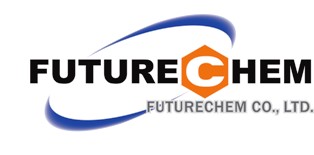FutureChem has unveiled the abstract of the interim results of the domestic phase 2 clinical trial of its radioligand therapy (RLT), ludotadipep (FC705 in development name), via the European Association of Nuclear Medicine (EANM).

The EANM, along with the Society of Nuclear Medicine and Molecular Imaging (SNMMI) of the United States, is one of the leading societies in the field of nuclear medicine, and this year's annual congress will be held from Oct. 15 to 23 in Hamburg, Germany.
FC705 is a radioligand therapy using the radioisotope lutetium-177 (177Lu) and is being developed to treat metastatic castration-resistant prostate cancer (mCRPC). It targets PSMA (prostate-specific membrane antigen). It includes an albumin conjugate to increase circulation time and maximize the treatment effect.
The clinical study is the first to evaluate a multi-cycle RLT in Korean prostate cancer patients. It focuses on validating the efficacy and safety of repeatedly administered FC705. The second dose for the final subject is currently underway.
Subjects received up to six doses of fixed-dose FC705, 3.7 GBq per dose, spaced eight weeks apart. All subjects had disease progression after receiving second-generation hormonal agents or taxane-based chemotherapy.
Of the 60 patients in the study, 23 were excluded because they did not meet the criteria due to higher FDG (fluorodeoxyglucose) uptake in metastatic lesions than PSMA uptake on FDG PET/CT scans, leaving 20 patients enrolled. FDG is a radioactive isotope bound to fluorine-18 (18F) used for diagnosing and following up prostate cancer.
At the interim analysis, 12 of the 20 patients (60 percent) enrolled had a greater than 50 percent reduction in prostate-specific antigen (PSA) levels, and three patients showed a complete response (undetectable PSA). Two patients showed undetectable PSA after three doses, and one had undetectable PSA after four doses.
Regarding safety, serious grade 3 or 4 adverse events were observed in five patients, including thrombocytopenia (two patients), pathologic fracture, sepsis, and bilateral leg weakness.
The researchers said that interim results suggest that multiple doses of FC705 may be an effective treatment option for Korean mCRPC patients.
FutureChem said it plans to complete patient dosing in the phase 2 FC705 trial this year and finalize the trial in the first quarter of 2025.
Related articles
- FutureChem's FC-705 receives orphan drug designation for prostate cancer treatment
- KoNECT holds 'Korea-China Clinical Trials Symposium' in Shanghai
- Korean prostate cancer radiopharmaceutical dosed 1st US patient in P2 trial
- FutureChem presents phase 2 results for prostate cancer drug at APPS Conference
- FutureChem selected for Korean ARPA-H Project to accelerate radioligand therapy development
- FutureChem moves new prostate cancer drug into phase 3 trial in Korea
- FutureChem's radiotherapy FC705 shows 73% PSA reduction in phase 2 prostate cancer trial

